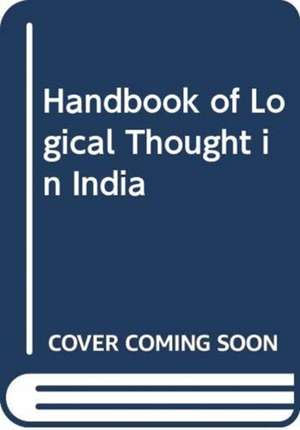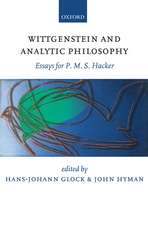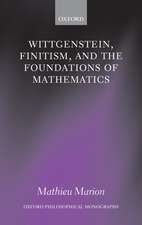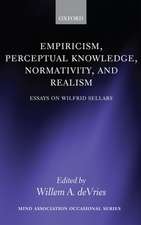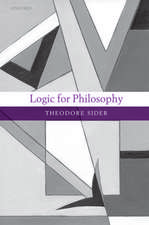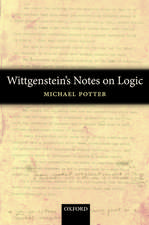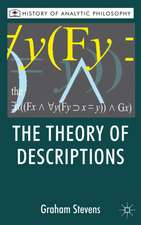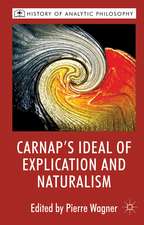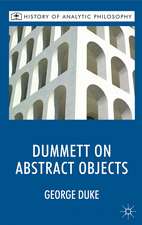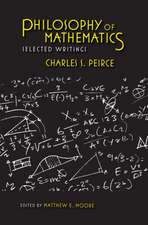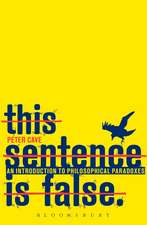Handbook of Logical Thought in India: Handbook of Logical Thought in India
Editat de Sundar Sarukkai, Mihir Kumar Chakrabortyen Limba Engleză Hardback – 5 noi 2022
Preț: 3646.44 lei
Preț vechi: 4446.88 lei
-18% Nou
Puncte Express: 5470
Preț estimativ în valută:
697.77€ • 746.13$ • 581.77£
697.77€ • 746.13$ • 581.77£
Carte disponibilă
Livrare economică 27 martie-10 aprilie
Preluare comenzi: 021 569.72.76
Specificații
ISBN-13: 9788132225768
ISBN-10: 8132225767
Pagini: 1200
Ilustrații: XXI, 1349 p. 220 illus., 9 illus. in color. In 2 volumes, not available separately.
Dimensiuni: 155 x 235 mm
Greutate: 2.95 kg
Ediția:1st ed. 2022
Editura: Springer India
Colecția Springer
Seria Handbook of Logical Thought in India
Locul publicării:New Delhi, India
ISBN-10: 8132225767
Pagini: 1200
Ilustrații: XXI, 1349 p. 220 illus., 9 illus. in color. In 2 volumes, not available separately.
Dimensiuni: 155 x 235 mm
Greutate: 2.95 kg
Ediția:1st ed. 2022
Editura: Springer India
Colecția Springer
Seria Handbook of Logical Thought in India
Locul publicării:New Delhi, India
Public țintă
ResearchCuprins
Early Nyāya Logic: Pragmatic Aspects.- Early Nyāya Logic: Rhetorical Aspects.- Later Nyāya Logic: Computational Aspects.- Later Nyāya Logic: Formal Aspects.- Buddhist Logic: Sample Texts.- General Introduction to Buddhist Logic.- Introduction to Buddhist Logicians and Their Texts.- Some Issues in Buddhist Logic.- General Introduction to Logic in Jainism with List of Logicians and Their Texts.- Logic of Syād-vāda.- Logical Argument in Vidyānandin’s Satya-śāsana-parīkṣā.- The Opponent: Jain logicians Reacting to Dharmakīrti’s Theory of Inference.- Convergence and Divergence of Nyaya and Tatvavada (Dvaita) Theories of Logic.-
Dependency of Inference on Perception and Verbal Testimony
Notă biografică
Professor Sundar Sarukkai works primarily in the philosophy of the natural and the social sciences. He is the founder of Barefoot Philosophers (www.barefootphilosophers.org) and is currently a Visiting Faculty at the Centre for Society and Policy, Indian Institute of Science, Bangalore. He is the author of Translating the World: Science and Language, Philosophy of Symmetry, Indian Philosophy and Philosophy of Science, What is Science?, JRD Tata and the Ethics of Philanthropy and two books co-authored with Gopal Guru – The Cracked Mirror: An Indian Debate on Experience and Theory and more recently, Experience, Caste and the Everyday Social. His latest book is Philosophy for Children: Thinking, Reading, Writing and it is published in English, Hindi, Tamil, Kannada, Malayalam and Bengali. He is the Series Editor for the Science and Technology Studies Series, Routledge. Sarukkai was a professor at the National Institute of Advanced Studies until 2019 and was the Founder-Director of the Manipal Centre for Philosophy and Humanities from 2010-2015.
Professor Mihir Kumar Chakraborty is currently Visiting Professor, School of Cognitive Science, Jadavpur University, India and Adjunct Professor, Indraprastha Institute of Information Technology Delhi (IIIT-Delhi). He was formerly Professor at Department of Pure Mathematics, University of Calcutta, India; Visiting Professor, Indian Institute of Engineering Science & Technology, Shibpur, India; Visiting Professor, Indian Statistical Institute, Kolkata, India; Guest Professor, Chongqing South West University, China; and Indian Institute of Science Education and Research Kolkata (IISER, Kolkata), Kalyani, West Bengal, India. His research interests are non-standard logics, fuzzy set theory and fuzzy logic, rough set theory and logics of rough sets, paraconsistent logics, foundations of mathematics, mathematics and culture, logic of diagrams, functional analysis, topology and knowledge representation. He has widely toured various countries on academic visits and co-authored and edited several books in both English and Bengali. One of the founders of Calcutta Logic Circle (CLC) and Association of Logic in India (ALI), he has also been awarded fellowships by Indian Institute of Advanced Studies (IIAS), Shimla; West Bengal Academy of Science and Tech. (WAST); Indian Council of Philosophical Research (ICPR); and International Rough Set Society (IRSS).
Caracteristici
Details the salient points of different logical systems, both ancient and modern, in India Discusses the contribution of Indian logicians to contemporary mathematics & computer science Offers new perspectives on logic in aesthetics, linguistics, Kashmir Saivism as well as the Tamil logical tradition
